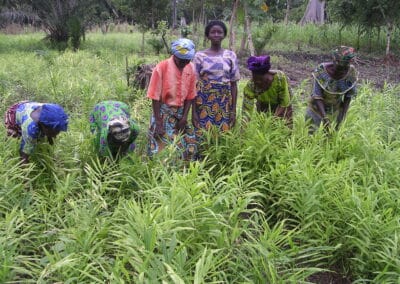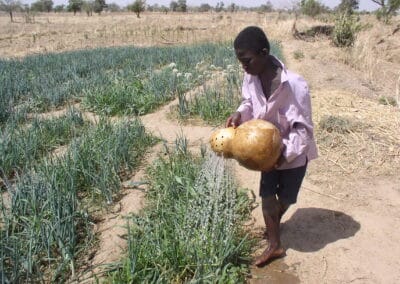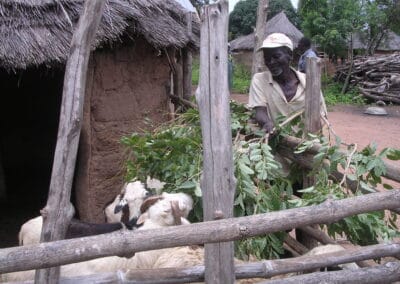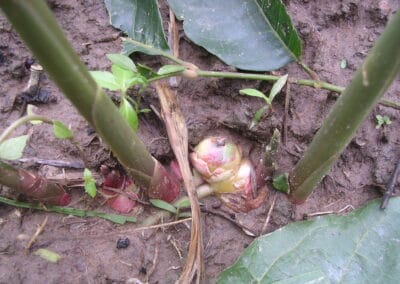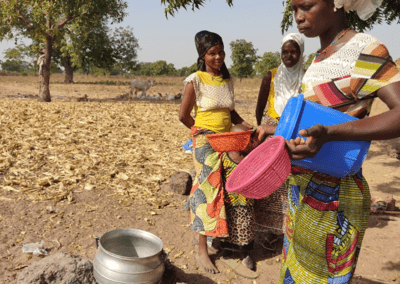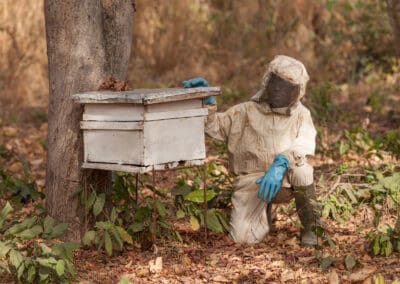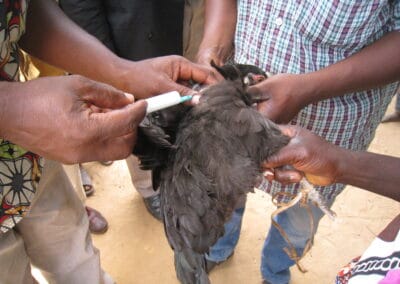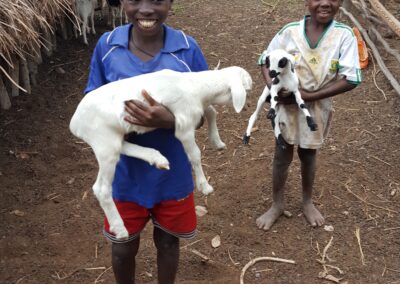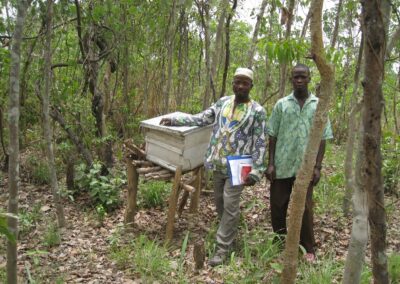Supporting of Farmers’ Initiatives
Project Overview
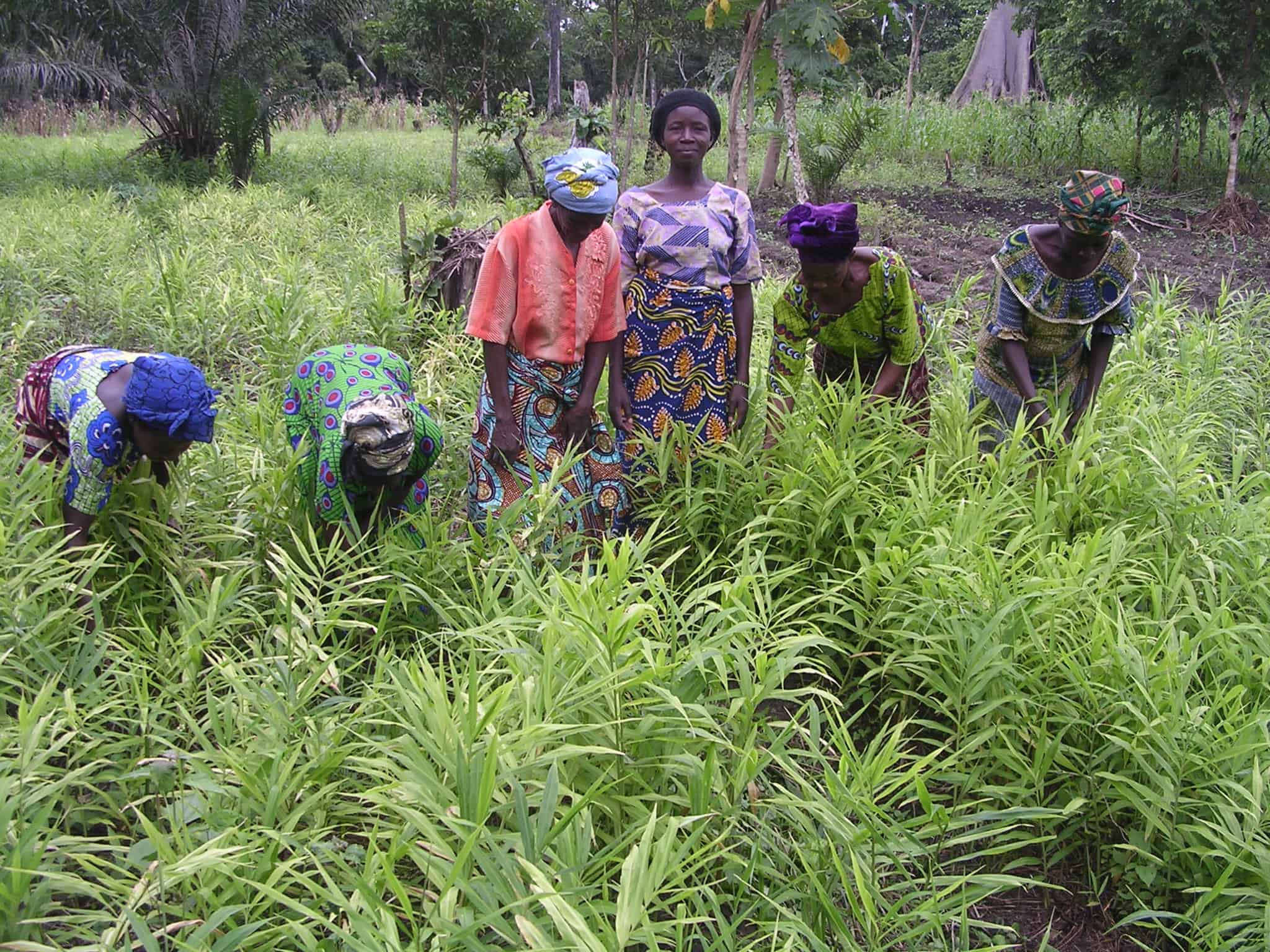
Country
Togo
Project name
PAIP Phase II
Project status
Completed
Duration of the project
| Start: | 08.01.2010 |
| End: | 31.12.2011 |
| 23 months |
Budget
Donors
Canton of Bern, Canton of Zurich, Paul Schiller Foundation, Margarethe and Rudolf Gsell Foundation, Tierärztlicher Notfalldienst Bern, Commune of Bottmingen, Bazar Louxembourg, Vaccinate for Africa
Project area
Topics
Tags
Background
The West African state Togo has a surface of 56‘000 km2 and a population of approximately 6 million of which 72.6% are considered poor. 65% of the population depend on agriculture for their survival and even though the EU embargo has been lifted in 2005 the country is still suffering its economic consequences. Livestock breeding and its importance for the families In Togo, livestock breeding is a supplementary activity and only 1% of households depend entirely on livestock, 41% combine it with agriculture. However, soil fertility is declining and insecurity on land ownership is increasing. Thus, income from agriculture is declining. In light of these conditions more and more families concentrate on livestock breeding although most of them lack the necessary knowledge and support. Despite its weak productivity, traditional livestock breeding of cattle, sheep, goats and poultry represent a source of income for the rural population and is often seen as „living savings”. Important additional household needs such as school fees, health costs as well as social expenses like marriages, burials or traditional celebrations are covered that way. Animal husbandry thus makes important contributions to family incomes and the country’s economy. In addition, cattle rearing adds value to meagre pastures as the animals consume household waste and their manure helps to fertilise the soil. At the same time the pastoralists do not invest in their animals‘ health, on the one had for lack of means, on the other hand the superstition that animals should not be treated as humans still dominates. The Millenium Development Goals In 2000 Togo adopted the Millennium Development Goals Declaration but already in 2004 it became evident that the country would not be able to reach its goals by 2015. One of the main factors being the lack of food security which can be ascribed to various factors: insufficient education in agriculture and cattle rearing, soil insecurity and inaccessibility, insufficient technical support through public bodies, limited resources and insufficient organisation of farmers in structured associations, adverse climatic conditions that have an influence on the crops but also weak production and marketing systems. This VSF-Suisse project therefore ties in perfectly with national priorities and contributes directly to the goal of reducing poverty and of protecting natural resources. Due to the project’s successful implementation, VSF-Suisse has decided to plan a third phase, aiming to support even more villages around the national park Fazao-Malfakassa. As soon as the project’s funding is completed, VSF-Suisse will take up its activities in this region once again.
Project:
In 18 villages around the Fazao-Malfakassa National Park the farmers have been given the opportunity of executing income generating activities in the agricultural sector, thanks to the intervention of VSF-Suisse. Through cattle rearing, vegetable cultivation and apiculture the members of the farmers‘ organisations are able to produce and market foodstuffs. This way they no longer depend on the park’s resources for survival and the ecosystem is thus relieved. Further, the beneficiaries learn to protect the resources. Tree nurseries have been established, the population, including teachers and students, has been sensitised on sustainable use and management of natural resources and through the formation of village committees the collaboration with the park authorities has been improved.
Having finished the project, a rather positive conclusion can be drawn. All the set goals have been achieved and it is easy to see that beneficiaries have learned to live in line with the national park. They now appreciate the park and were even able to improve their quality of life through their new income generating activities – leaving the park’s resources untouched The number of beneficiaries keeps increasing, even after VSF-Suisse’s withdrawal from the project, as repaid micro-credits are always passed on to new borrowers. The local village committees are in charge of the distribution of these micro-credits, in addition to the coordination of the farmers’ organisations. VSF-Suisse has trained lay veterinaries which will collaborate with the local private veterinaries to keep controlling animal health.

